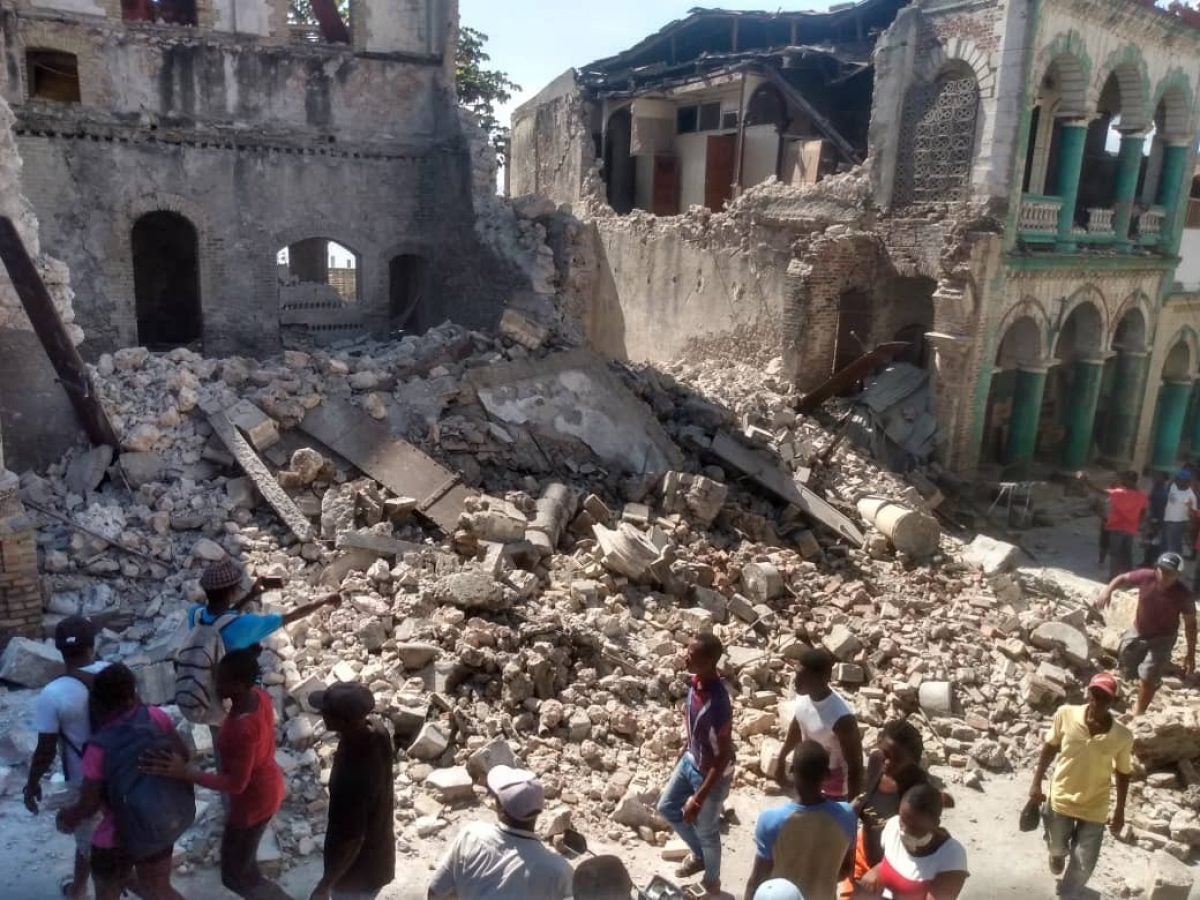
Just days after a 7.2 magnitude earthquake struck Haiti, the death toll continues to rise and so do the numbers of those injured and displaced.
Haiti’s Civil Protection Agency has now reported that as of Wednesday, 2,189 people have died and more than 12,000 have been injured following the August 14 earthquake, which was centered in the southwestern part of the island. More than 300 people are still missing. These numbers are expected to rise as search and rescue efforts continue.
An estimated 1.2 million people in the Caribbean nation have been affected—including 540,000 children—according to UNICEF. The child-welfare organization also reported that 84,000 homes were either damaged or destroyed along with public infrastructure, including hospitals, schools and bridges.
Landslides and flooding brought on by recent storms, including Tropical Storm Grace, have caused additional damage, further complicating disaster relief response.
The destruction comes at a time when the country continues to reel from the assassination of President Jovenel Moïse in July, the ongoing coronavirus pandemic and worsening violence.
“We have to put our heads together to rebuild Haiti,” said Prime Minister Ariel Henry in a video address on Wednesday. “The country is physically and mentally destroyed.”
For many, the devastation in Haiti has also reignited feelings of anger at how relief efforts were handled after the country’s last massive earthquake in 2010, which killed an estimated 200,000 people. Hundreds of millions of dollars in aid could not be accounted for and at least 10,000 people died in Haiti as a result of cholera brought in by relief workers.
According to the Associated Press, Henry says that his administration will work to not “repeat history on the mismanagement and coordination of aid.”
With relief efforts well underway, activists, Haitian diaspora groups and others have implored the public to donate and provide resources to local organizations and groups directly connected to people in the country rather than large organizations that may not be.
Daphne Leroy, co-founder and Vice Chair of Programs of Haitian-American not-for-profit organization The Haitian Roundtable, shared with ESSENCE ways the international community can support humanitarian relief efforts in Haiti right now, and the importance of due diligence when working to identify credible organizations.
“Given the current situation following the devastating earthquake, the best way to support humanitarian relief efforts in Haiti right now is by committing financial support to reputable organizations on the ground in Haiti with the capacity and track record for providing assistance,” she told ESSENCE via email.
“To determine if an organization is making a direct impact, it’s important to research the organization to assess if a donation will contribute to much-needed services and rescue efforts in response to the crisis,” Leroy explained. She also noted that another area to consider is whether Haitians are actually part of the organization’s leadership and response teams.
To aid emergency relief efforts and care for survivors, Leroy says members of The Haitian Roundtable will provide financial support to several partner organizations on the ground that are providing urgent assistance. The organization is also leveraging its network of Haitian-Americans across local U.S. government, businesses and the nonprofit sector to help inform the diaspora about the critical needs on the ground in Haiti.
If you are looking to donate to relief efforts but are not sure where to start, The Haitian Roundtable recommends these five organizations due to their track record of providing on-the-ground assistance and successful efforts in getting direct aid to people impacted by disaster in Haiti.
- Ayiti Community Trust Foundation: www.ayiticommunitytrust.org
- Capracare: www.capracare.org
- Fonkoze: www.fonkoze.org
- Hope For Haiti: www.hopeforhaiti.com
- Partners In Health / Zanmi Lasante: www.pih.org







On August 25, The Haitian Roundtable will co-produce a virtual forum to brief the international community about the latest developments in Haiti and to provide additional information about ongoing ways to support both short-term and long-term relief efforts.
For more information please visit www.thehaitianroundtable.org.







